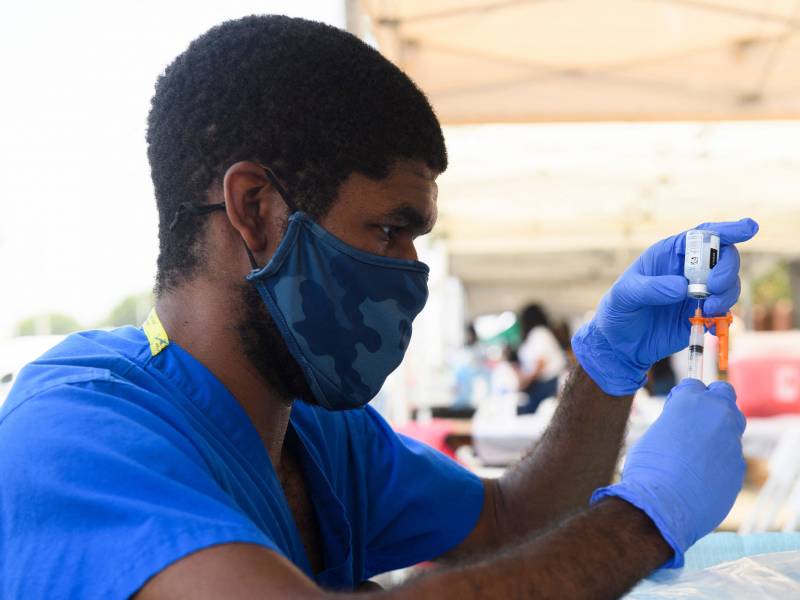By giving its blessing to the use of a vaccine combination, the FDA authorization could make it easier to give booster shots in nursing homes where residents haven’t all received the same original immunizations.
“From a public health perspective, there’s a clear need in some situations for some individuals to receive a different vaccine,” said Dr. Amanda Cohn, chief medical officer at the CDC’s National Center for Immunization and Respiratory Diseases, during last week’s FDA meeting.
The move could also make it easier for a wide range of people to get boosters, as any available shot would suffice.
Dr. Mark Sawyer, a committee member from Rady Children’s Hospital in San Diego, applauded ease of access under the mix-and-match approach. “I’m sold already,” he said, during the committee’s deliberations. “And that’s because I agree completely with Dr. Cohn’s comments that we need flexibility and improved access for everybody, which the flexibility of being able to mix and match will allow.”
If the CDC approves the Moderna authorization on Thursday, people who got the company’s two-shot vaccine at least six months beforehand could get a booster. Those eligible would be people 65 years and older, and people 18 to 64 who are either at high risk of severe COVID-19 or whose work or institutional exposure puts them at high risk of contracting the virus.
The FDA authorization comes after a committee of advisers voted 19-0 in support of the booster last Thursday. The scope of the Moderna authorization matches the one the FDA gave to Pfizer COVID-19 booster doses in September.
One difference: Moderna’s COVID-19 vaccine booster is half the dose of the initial shots used in its two-shot vaccination: 50 micrograms of mRNA versus 100 micrograms per each initial shot. The Pfizer vaccine, meanwhile, uses a third identical dose.
The FDA also authorized a booster dose of the J&J vaccine that people 18 and older can get at least two months after initial immunization. A study published by the CDC in September showed the J&J vaccine was about 68% effective about a month after the shot in keeping people out of the hospital for COVID-19. By comparison, Moderna’s vaccine was 92% effective, and Pfizer’s 77%, about four months after.
Several committee members noted that people were already getting booster doses and using a mix-and-match approach on their own.
“Many Americans are taking matters into their own hands,” said Dr. Ofer Levy, a professor of pediatrics at Harvard Medical School. “I’m reading in the media that people are getting boosters or mixing different products through their primary care providers, or not revealing what they got before. In the real world, all these kinds of combinations of extra boosters are already happening.”
More than 9 million people in the U.S. have received a Pfizer booster, according to data from the Centers for Disease Control and Prevention. CDC data also shows that more than 1.6 million people have received a Moderna booster and more than 11,000 another shot of the J&J vaccine — despite lacking official approval.
Ofer asked the FDA to act quickly: “I think it’s a matter of some urgency for [the] FDA to help sort out what is admittedly a complicated and challenging scenario. We can’t hide from it. And I do think we need to give guidance to the public.”
Copyright 2021 NPR. To see more, visit npr.org.
9(MDAxOTAwOTE4MDEyMTkxMDAzNjczZDljZA004))

9(MDAxOTAwOTE4MDEyMTkxMDAzNjczZDljZA004))
